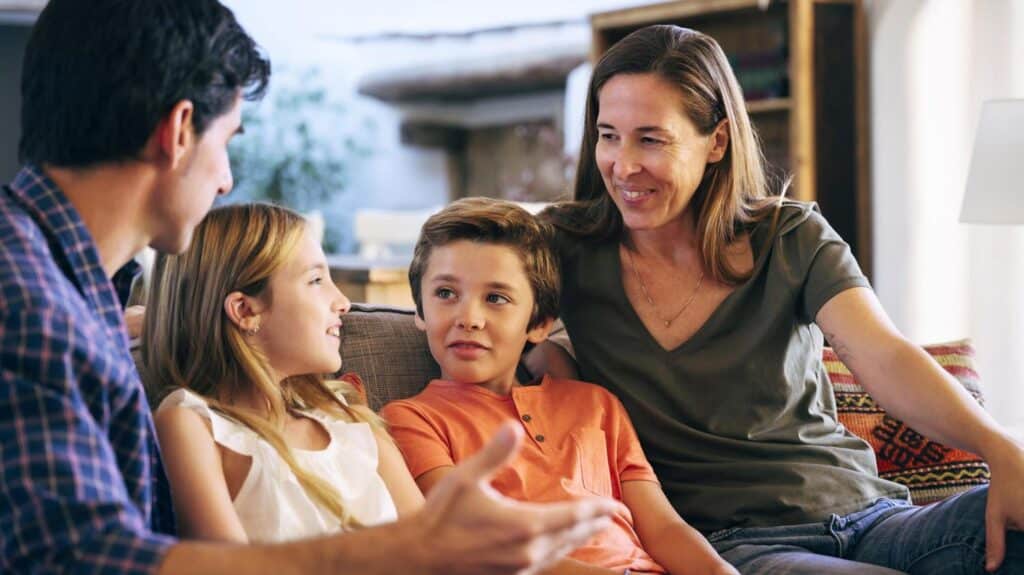Home / Family Therapy

Family therapy understands that mental health and addiction problems usually come from deeper issues in the family. By working with each other and looking at what’s really going on, families can help break the cycle of bad behavior and find healthier ways to work together.
This is a way for family members to work together to help each other out and be more understanding and compassionate. It’s a place where everyone has a voice and everyone is heard.
Family therapy helps families get through tough times, build strength, and help them heal in the long run. It does this by using targeted interventions and using evidence-based methods.
If you or someone close to you is dealing with mental health issues or substance use, think about how family therapy can help. We can work together to break the cycle of addiction and heal everyone in the family.
"*" indicates required fields
Family therapy is a type of psychotherapy that looks at the whole family. It’s also called family systems therapy.
Family therapy is different from individual therapy because it involves everyone in the family and looks at the bigger picture of mental health and addiction. It’s not just about one person’s worries – it’s about the whole family.

If you’re looking for a way to help your family work through their feelings and thoughts, family therapy can be a great option. It’s usually led by a licensed family therapist who creates a space for your family members to talk about their emotions and behaviors in a way that’s safe and without judgment.
At the start of the sessions, the therapist tries to get to know each family member and build trust with them.
Once the therapist gets a good grasp of what’s going on in the family, they’ll lead the family through specific sessions. These sessions can include things like:
I’ve been in recovery for over a year now and have met a lot of people along the way. Stuart and Wilbur are genuine about wanting to help someone struggling with alcohol or drugs. Me being one of them. I’ve seen a few sober houses along the way and Calusa recovery is by far the best sober living I’ve come across. They show you how to have fun in recovery and live life sober. The houses they have are awesome and clean! Highly recommend them. It changed my life!
Calusa Recovery was recommended to us as being a top sober living home. Meeting Stuart, Wilbur, and the impeccable house confirmed this to be true. Stuart and Wilbur are truly invested in all aspects of their clients’ recovery. We value their collaborative approach with clients and family.
Calusa is a place that treats you like a real person with love and respect. They do outings together to have a great community environment. Calusa pushes you to be a responsible young man but does it in a way of caring and helping you find self love. Highly recommend for any young man wanting to take the next step to better himself and his future.
I feel so fortunate that I found Calusa Recovery. Calusa played a huge part in helping me maintain my sobriety. I enjoyed the people, the staff, and the living arrangements. Thank you so much for helping me get control of my life back. I could not have made these strides without Calusa Recovery.

Mental health and addiction can have a huge impact on people and their families. Family therapy can help families break the cycle of addiction and find healthier ways to live. Family therapy is a place where everyone has a voice and everyone is heard and respected. Through personalized interventions and proven methods, families can overcome obstacles, build strength, and support long-term healing. If you or someone close to you is dealing with mental health issues or addiction, think about how family therapy can help. We can work together to break the cycle of addiction and heal everyone in the family.
Chris T.